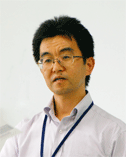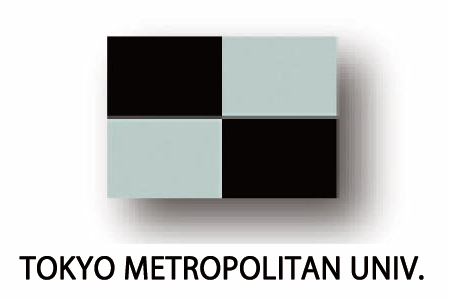Overview
Home | Overview
About This Program
Professor Kazuhiro Kurata (Coordinator)

Since its founding in 2006, the Graduate School of Science and Engineering has endeavored to provide an interdisciplinary educational program with the aim of developing professionals who think from both a scientific and engineering perspective. Progress in this regard has been made in particular among three departments—Department of Mathematics and Information Sciences, Department of Electrical and Electronic Engineering, and Department of Mechanical Engineering—through such activities as overseas internships, inter-departmental seminars, lectures and workshops using a common CAD room, and math clinics supporting science, engineering, and mathematics education overseen by doctoral students in the Department of Mathematics and Information Sciences.
This program aims to promote further coordination and cooperation among these three departments. More specifically, it aims to construct a science and engineering interdisciplinary educational program in which the teaching staff and students of these departments interact with each other through activities centered about mathematics and mathematical model simulations, this with the objective of developing multi-disciplinary professionals who have both a scientific and engineering frame of mind. The program also aims to give graduate school education more substance and improve the level of specialized education in each of the above departments. With these objectives in mind, a number of concrete inter-departmental projects have been prepared, and goals have been set to increase the feasibility of developing multi-disciplinary professionals in science and engineering. These projects include the development of professionals capable of executing and analyzing large-scale simulations of complex systems and other phenomena in applied physics based on simulation facilities for interdisciplinary education using a CAD room, and the development of engineers having the knowledge and skills for creating and applying high-reliability system-test theories as in the creation of mathematical methodology specifications using formal language theory. With such projects as core activities, the program aims to develop highly promising professionals equipped with broad analytical and execution skills in both science and engineering.
As part of this program, an appropriate organization is being set up to promote such projects. Under the oversight of the Inter-departmental Coordination Program Promotion Office composed of staff from the above three departments, a new development program is being established consisting of a “Basic Program for Developing Interdisciplinary Professionals” (master’s period) and an “Advanced Program for Developing Interdisciplinary Professionals” (doctoral period). This development program seeks to give course units earned more substance, to systematically raise the level of knowledge through a foundation in mathematics, to foster vision and creativity together with an energetic frame of mind, to instill planning skills for proactively identifying and solving problems, and to enhance execution skills that can be applied to both industry and international society. The idea here is to restructure the educational system for developing professionals with high international communication skills.
Evaluation Result(in Japanese)

